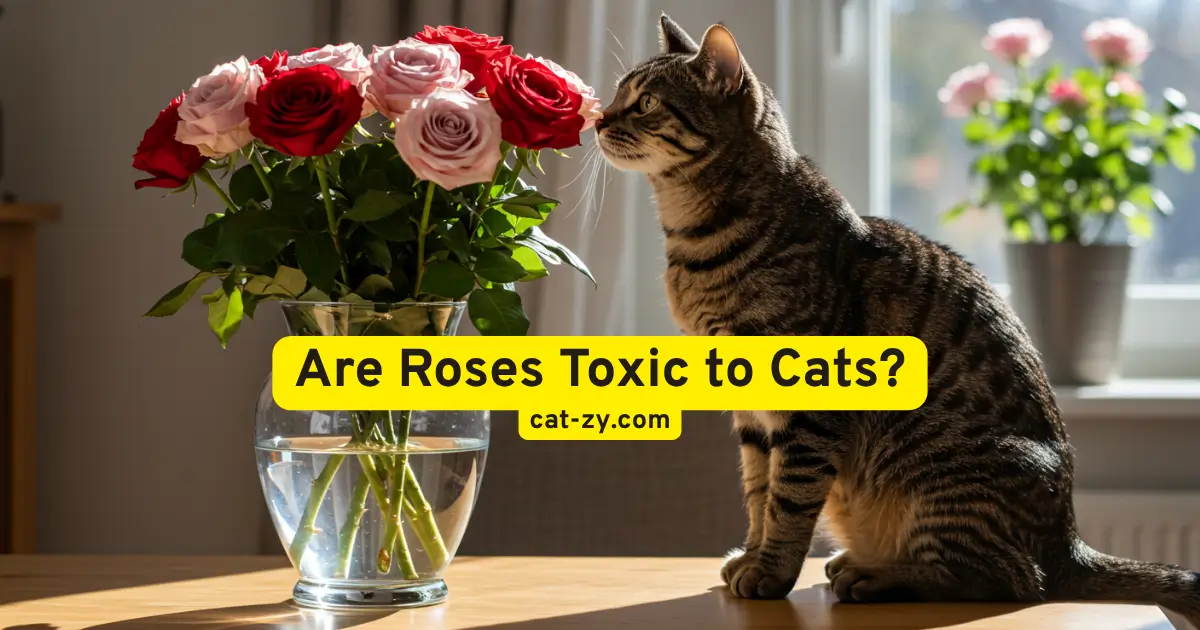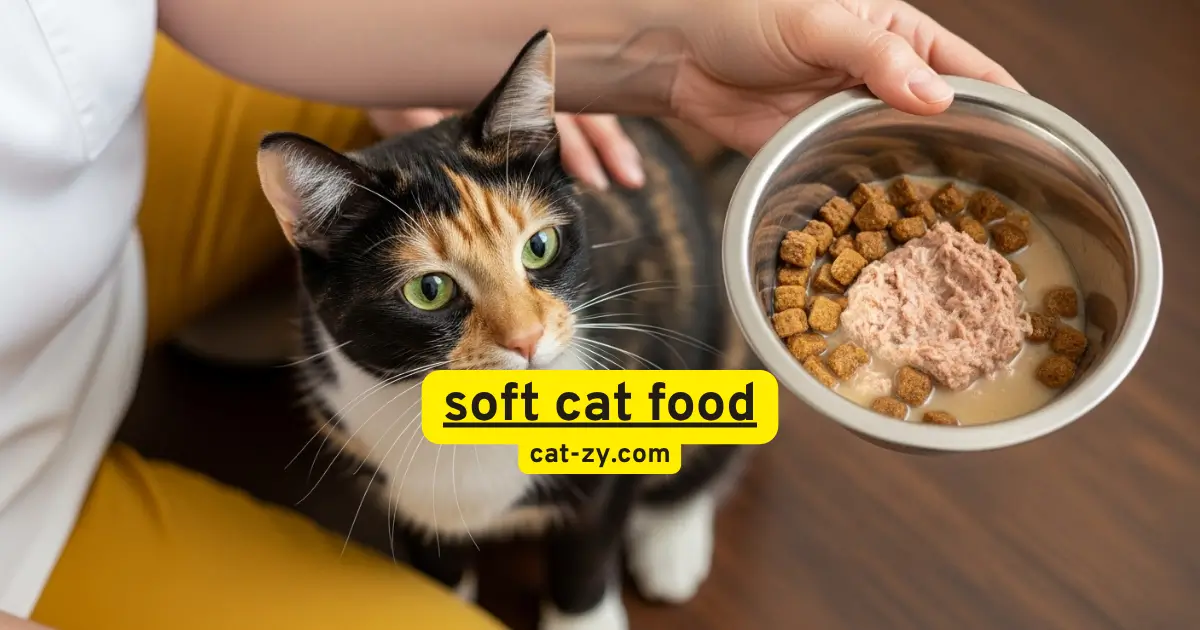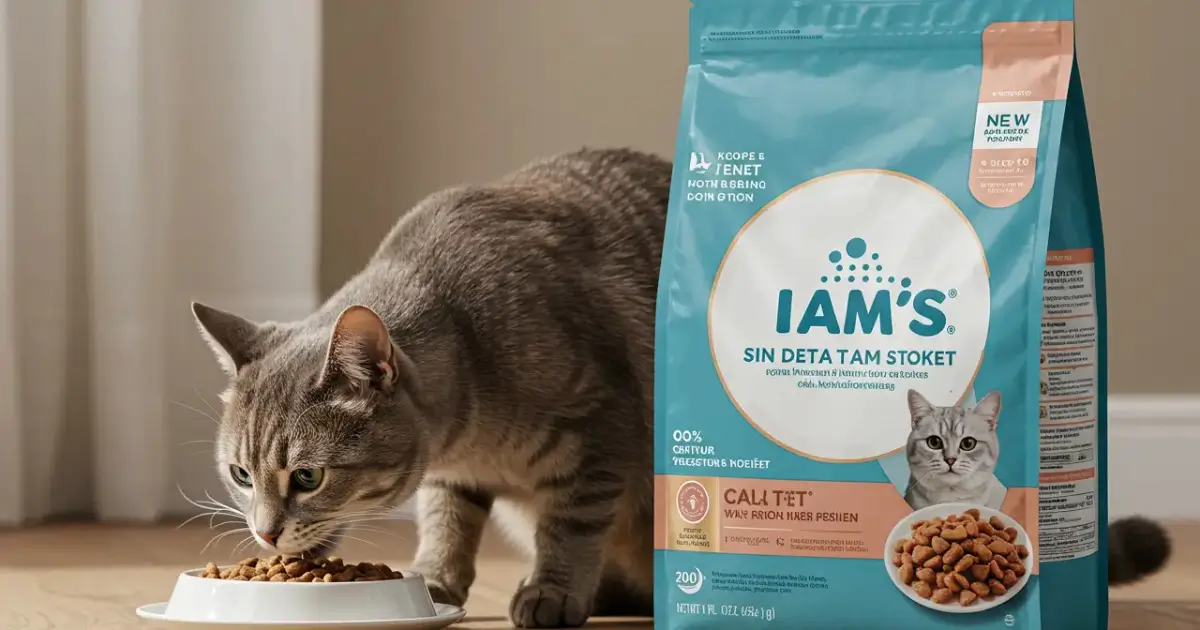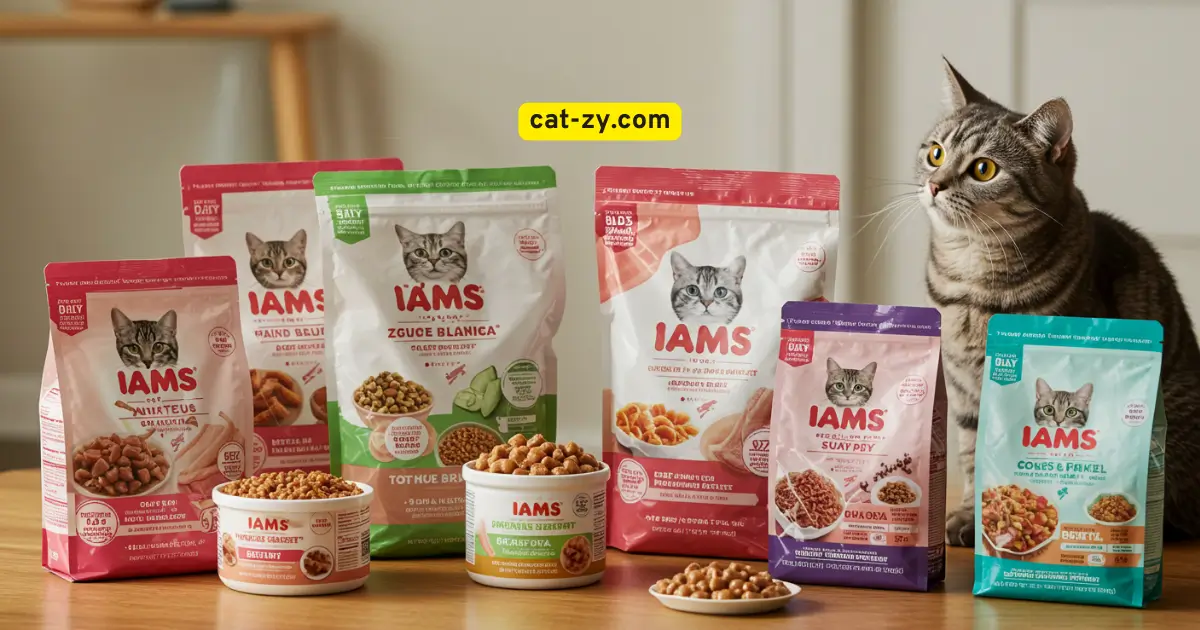Are Roses Toxic to Cats? 7 Shocking Facts Revealed
If you’re a cat owner who loves having fresh flowers at home, you might wonder if your feline friend is safe around beautiful bouquets. Many of us enjoy having roses in our living rooms. But have you thought about the risks they might pose to your pet?
As a responsible cat owner, it’s natural to worry about your pet’s well-being. The truth is, the relationship between cats and flowers can be complex. It’s key to know the dangers some blooms can bring into your home.
In this article, we’ll dive into the shocking facts about roses and cat safety. We aim to help you make smart choices about the flowers you bring home.
Table of Contents
The Truth About Roses and Your Feline Friend
Many cat owners worry if roses are toxic to their pets. They want to keep their cats safe and healthy. It’s important to know the risks and why these concerns exist.
Common Concerns of Cat Owners
Cat owners often fear the toxicity of roses and frequently ask veterinarians, “Are roses toxic to cats?”. Roses themselves are not usually toxic. However, the pesticides and chemicals used on commercial roses can be harmful if ingested.
Why This Information Matters for Cat Safety
Knowing about the risks of roses and cats, and understanding “are roses toxic to cats”, is key to keeping your cat safe. By being informed, you can reduce dangers. For example, keep rose stems away to avoid physical injuries from thorns.
Being aware helps you enjoy roses while keeping your cat safe. It’s about finding a balance between enjoying flowers and your cat’s health.
Are Roses Toxic to Cats? The Definitive Answer
Roses are a classic symbol of love and beauty. But for cat owners, the real question is whether these flowers pose a threat to their cat’s health. We need to look into what veterinary science says about roses and cats.
What Veterinary Science Says About Roses and Cats
Veterinary science gives us a clear view of roses and cats. According to vets, roses are not typically toxic to cats. But it’s key to know that while the flowers themselves may not be toxic, other parts of the rose plant could cause issues.
Different Parts of the Rose Plant and Their Effects
The rose plant has various parts, like petals, leaves, stems, rose hips, and seeds. Knowing how each part affects cats is important for cat owners.
Petals, Leaves, and Stems
Rose petals are generally safe for cats. But the thorns on the stems can cause physical harm. These thorns are not toxic but can be uncomfortable or injurious if they puncture the skin or are ingested.
Rose Hips and Seeds
Rose hips, the fruit of the rose plant, and their seeds are not toxic. But eating a lot of them can upset a cat’s stomach. Cat owners should be careful about these possible problems.
In conclusion, while roses are not typically toxic to cats, cat owners should be cautious. They should know about the different parts of the rose plant and how they might affect their cat’s health.
Shocking Fact #1: The Real Danger Isn’t the Flower Itself
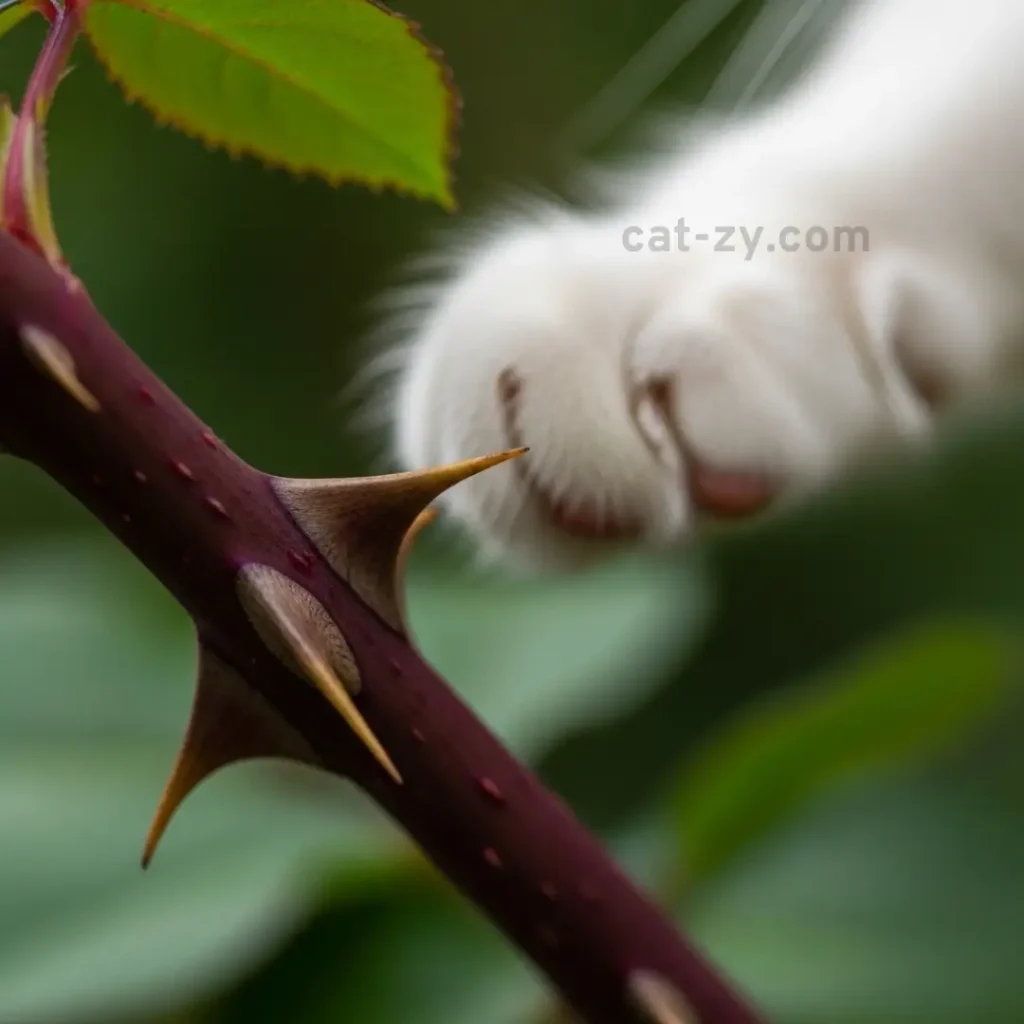
If you worry about your cat and roses, you might be looking at the wrong thing. The rose flower itself is usually safe. But other parts of the rose plant can be very dangerous for your cat.
The Thorny Truth About Rose Stems
Rose stems have sharp thorns that can hurt your cat. These thorns can cause painful wounds if your cat touches or plays with the stem.
Physical Injuries vs. Toxicity Concerns
Thorns can hurt your cat right away. Cats are curious and might get hurt while checking out the rose plant.
Emergency Care for Thorn Injuries
If you think your cat got hurt by rose thorns, watch them closely. Look for signs of infection or bleeding. If you see anything strange, get vet help right away.
Keep your roses away from your cat to avoid accidents. Knowing these dangers helps you keep your cat and roses safe together.
Shocking Fact #2: Store-Bought Roses May Contain Hidden Toxins

When asking “Are roses toxic to cats?”, roses themselves are not usually harmful to cats. But how they’re grown can be a problem. Commercial rose farms often use pesticides and chemicals to make the flowers look better and last longer.
Common Pesticides and Chemicals Used on Commercial Roses
Commercial rose growers use chemicals like neonicotinoids and pyrethroids to fight pests. These chemicals can stay on the flowers even after they’re picked.
How These Substances Affect Feline Health
Cats might get sick if they eat these chemicals. They groom themselves by licking or nibbling on the roses. Neonicotinoids can make cats vomit, have diarrhea, and feel very tired if they eat too much.
Identifying and Avoiding Treated Roses
To stay safe, buy roses from local, organic farms that use fewer chemicals. If that’s hard, ask your florist about their growing methods. You can also cut down risks by removing lower leaves and trimming stems before bringing the roses home.
Shocking Fact #3: Rose Varieties Have Different Safety Profiles
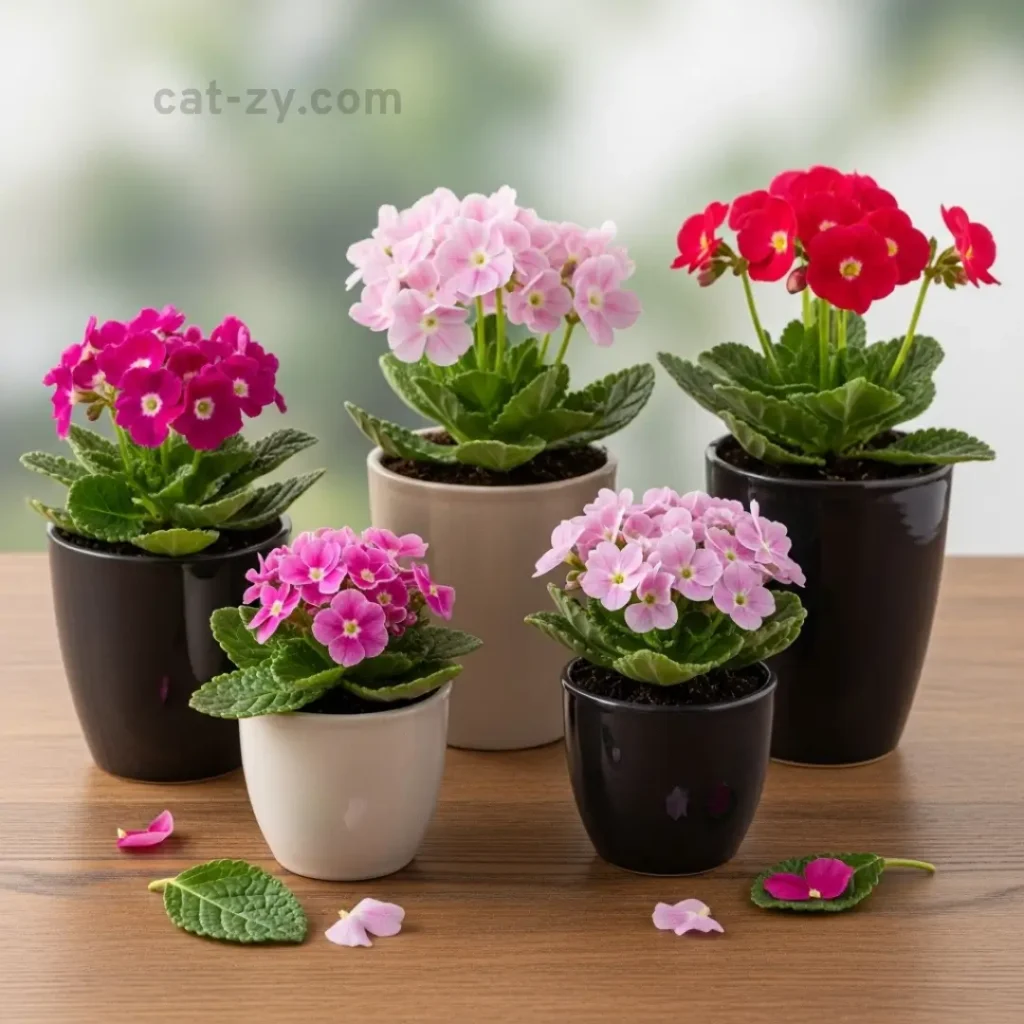
Roses come in many types, and knowing which ones are safe for cats is key. True roses (Rosa spp.) are usually okay for cats, but not all plants called “roses” are safe.
True Roses vs. “Rose” Look-Alikes
To properly answer “are roses toxic to cats?”, true roses are mostly safe for cats, but eating too much can upset their stomach. But plants like the Desert Rose (Adenium obesum) are not true roses. They can be harmful to cats because they have toxic compounds.
Desert Rose and Other Toxic Imposters
Plants like the Desert Rose, Christmas Rose (Helleborus spp.), and Lenten Rose (Helleborus spp.) look like true roses but are not. They have harmful toxins for cats. It’s important to keep these plants away from your cat.
Safest Rose Varieties for Cat Households
If you have cats and want roses in your home, choose true rose varieties. Hybrid Tea or Floribunda roses are both beautiful and safe for your cats.
Shocking Fact #4: The Rose Family Contains Both Safe and Toxic Plants
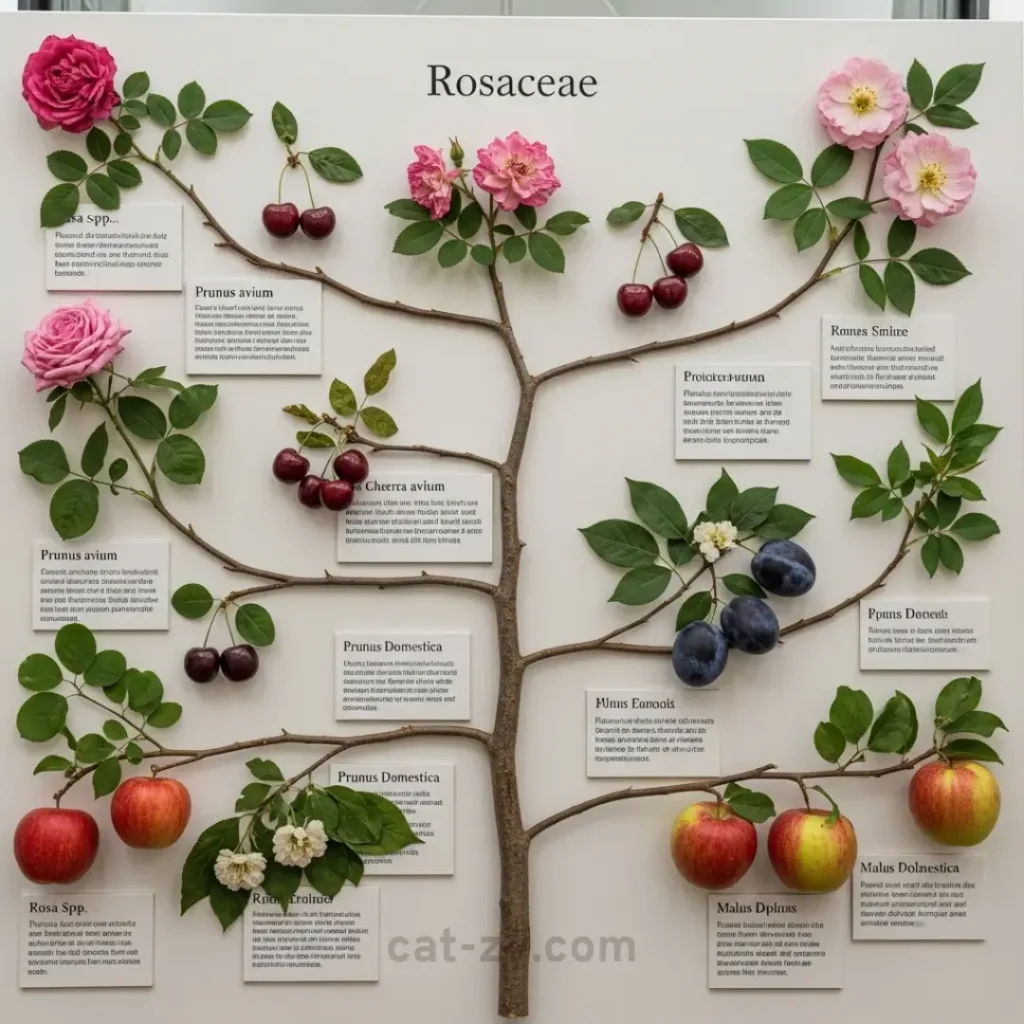
While the direct answer to Are roses toxic to cats is usually no, their family has secrets. The Rosaceae family includes many plants, some safe for cats and others not. It’s important to know which ones to avoid.
Botanical Relationships Between Roses and Other Plants
The Rosaceae family is big and has many types of plants. It includes roses, as well as plants that grow fruits like apples and pears. Knowing these relationships helps you figure out which plants are safe for your cat.
Dangerous Relatives in the Rosaceae Family
Some plants in the Rosaceae family, like cherries and plums, can be toxic to cats. These fruits have amygdalin, which can release cyanide when eaten. Even though roses are safe, knowing about these toxic relatives is key.
Cross-Reactivity Concerns for Sensitive Cats
Cats with sensitivities might react to certain plants in the Rosaceae family. While roses are usually safe, it’s good to watch how your cat acts around different plants. If your cat seems upset, talk to a vet.
Learning about the Rosaceae family helps you make your home safer for your cat. Be careful about the plants you choose to keep around.
Shocking Fact #5: Cats Process Floral Compounds Differently Than Humans
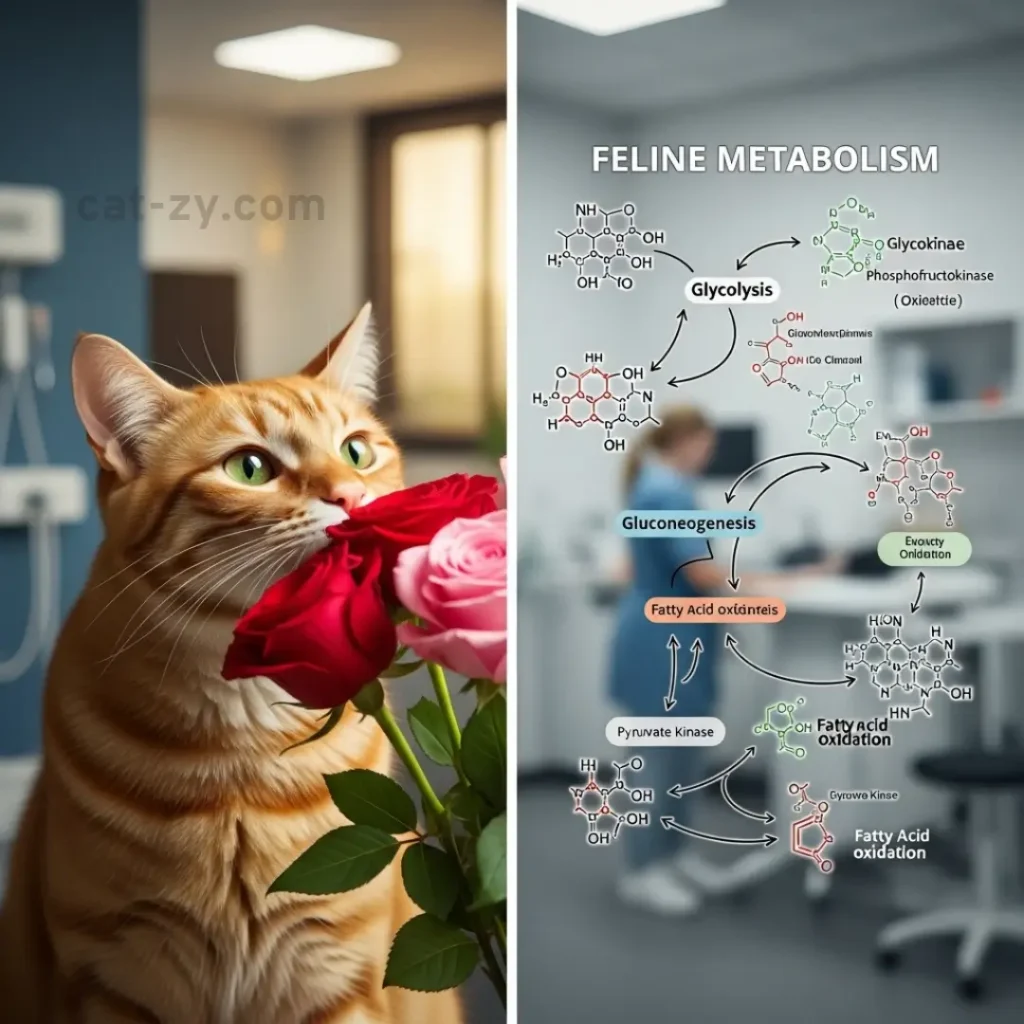
Cats especially handle floral compounds. This can impact their health. Unlike humans, cats process substances in flowers, like roses, differently.
Unique Feline Metabolism and Plant Compounds
When evaluating “Are roses toxic to cats?”, it’s important to know that cats lack some enzymes that humans have. This makes them more sensitive to plant compounds. Roses themselves are not usually toxic, but other factors can play a role.
Symptoms of Rose-Related Distress in Cats
Watching your cat’s behavior and health is key if they’re near roses or other flowers. Symptoms can be digestive or behavioral.
Digestive Symptoms
Some cats might get gastrointestinal upset from eating rose plant parts. While roses are not toxic, eating plants can cause discomfort.
Behavioral Changes
Cats may show behavioral changes like being more tired or agitated. These changes help you understand how they react.
When to Contact Your Veterinarian
If your cat shows unusual symptoms after being near roses, see your vet. They can offer advice based on your cat’s health and the situation.
Knowing how cats process floral compounds helps keep them safe. By understanding their needs and sensitivities, you can have flowers like roses at home. This way, you can enjoy them while keeping your pets safe.
Shocking Fact #6: Rose Products Can Be More Dangerous Than the Flowers
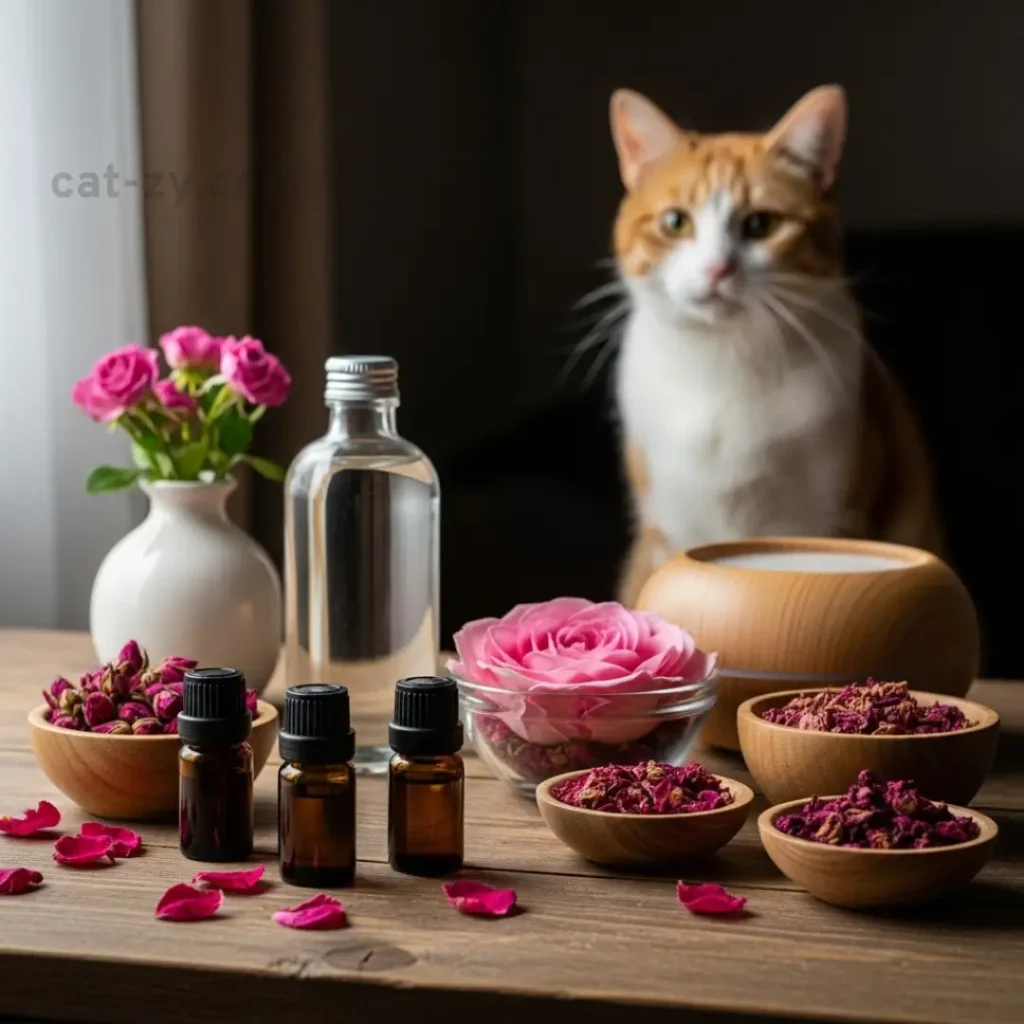
Beyond asking “Are roses toxic to cats?”, rose products, like rose water and essential oils, can be more harmful to cats than the flowers themselves. While the flowers are safe, the concentrated products can be very dangerous. They can harm a cat’s health.
Rose Water, Essential Oils, and Concentrated Products
Rose water and essential oils are used in aromatherapy and to make homes smell nice. But, they can be toxic to cats because they have strong chemicals. These chemicals can cause problems when cats eat or breathe them in.
The Science Behind Cats’ Sensitivity to Essential Oils
Cats can’t break down many chemicals in essential oils because they lack a certain enzyme. This means these chemicals can build up in a cat’s body. This can lead to sickness, tiredness, and trouble breathing.
Safe Alternatives for Home Fragrance
If you want to make your home smell nice without harming your cat, try using safe essential oils. Chamaemelum nobile (Roman chamomile) is a good choice. Or, use synthetic fragrances that are safe for pets. Always check with your vet before bringing new things into your home.
Knowing about the dangers of rose products helps keep your cat safe. By choosing safer options, you can make a better home for your pet.
Shocking Fact #7: Most Cat-Rose Incidents Are Entirely Preventable
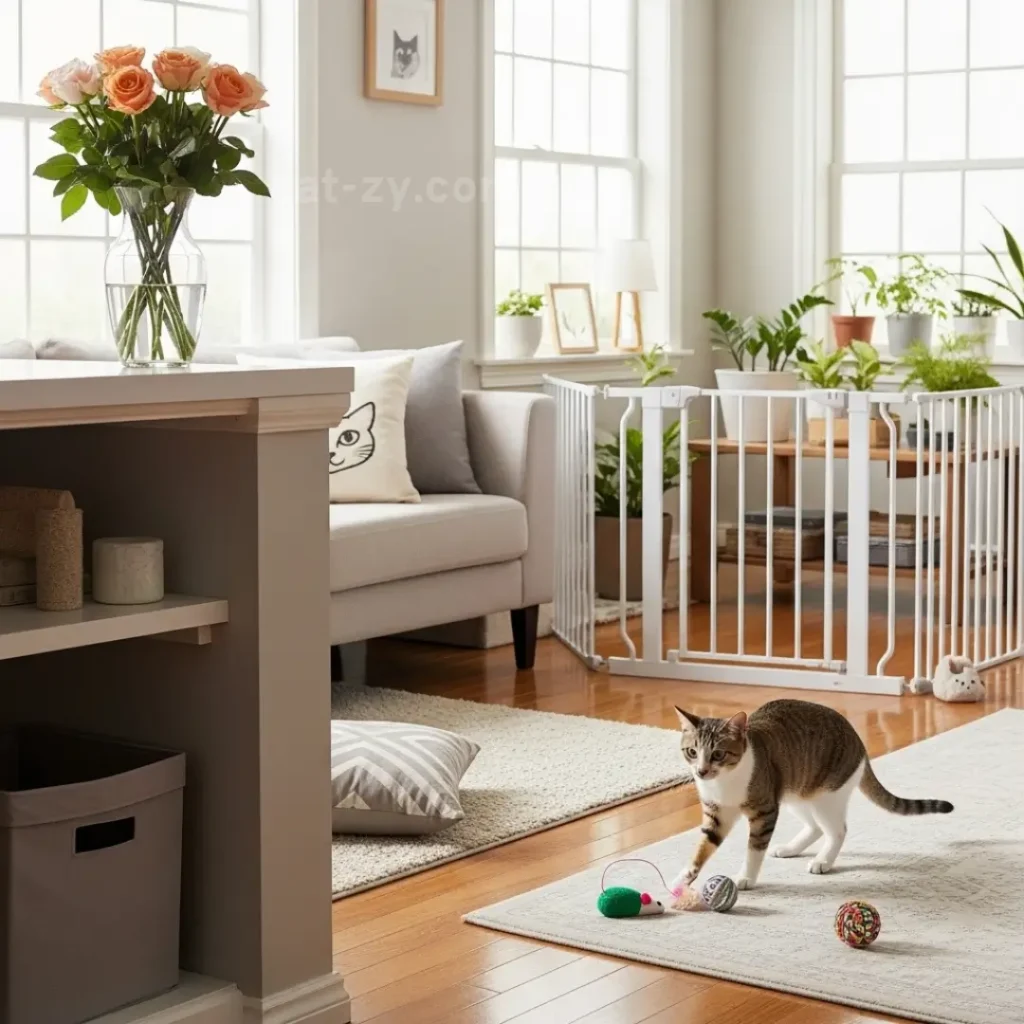
The good news is that most cat-rose incidents can be stopped with the right steps. Knowing how cats interact with plants and securing your home can help. This way, you can enjoy roses while keeping your cat safe.
Understanding Feline Curiosity and Plant Interaction
Cats are naturally curious, often exploring by smell and taste. Roses, with their fragrance and looks, can catch a cat’s eye. When considering ‘Are roses toxic to cats?’, it’s key to remember that cats may not know the difference between safe and dangerous plants, including roses.
Creating Physical Barriers and Safe Spaces
Creating barriers is a good way to stop cat-rose incidents. You can place roses out of reach or use baby gates. Also, setting up safe spaces with cat-friendly plants can keep your cat away from roses.
Training Techniques for Plant-Curious Cats
For cats that love plants, training can help. Positive reinforcement, like rewarding them for ignoring roses, works well. Also, make sure your cat gets enough playtime to lose interest in plants.
By using these methods, you can lower the risk of cat-rose incidents. This makes a safer and happier place for both your cat and roses.
Are Carnations Toxic to Cats? Comparing Common Flowers
Just as people ask, ‘Are roses toxic to cats?’, flowers like carnations can be harmful to cats. It’s important to know how toxic they are. Cats are curious and might eat flowers, including household ones.
Carnation Toxicity Profile
Carnations are mildly toxic to cats. They’re not usually dangerous, but eating them can upset a cat’s stomach. Watch your cat if they eat carnation parts.
Other Common Flowers and Their Dangers
Not all flowers are safe for cats. Some can be very dangerous and cause serious health problems.
Highly Toxic Flowers to Keep Away From Cats
Flowers like lilies, sago palms, and tulips are very toxic. Lilies can harm a cat’s kidneys, and tulips can cause vomiting and heart problems. Keep these flowers away from your home if you have cats.
Moderately Concerning Flowers
Flowers like daffodils and azaleas are moderately toxic. They can make cats sick, including causing vomiting and diarrhea. In bad cases, they can lead to more serious problems.
Cat-Safe Flower Alternatives for Your Home
If you love flowers and have cats, there are safe options. Cat-safe flowers like orchids, sunflowers, and zinnias are beautiful and safe for your pets. Always check if a flower is safe before bringing it home.
Creating a Cat-Friendly Home with Beautiful Plants
Turning your home into a safe space for cats doesn’t mean giving up on beauty. With careful choices, you can have both your pets and plants.
Safe Gardening Practices for Cat Owners
Beyond knowing “are roses toxic to cats?”, it’s key to know which plants are safe for cats. While roses are usually okay, other plants might not be. Researching each plant’s toxicity before bringing it home is a must.
Indoor Plant Placement Strategies
Placing plants wisely can prevent your cat from getting into them. Use hanging baskets or high shelves to keep plants out of reach. This keeps your cat safe and your plants healthy.
Monitoring Your Cat’s Behavior Around Plants
Watching how your cat acts around plants is important. If they seem drawn to a plant or keep nibbling, it’s time to rethink your plants or secure them.
Cat-Safe Flower Arrangements for Special Occasions
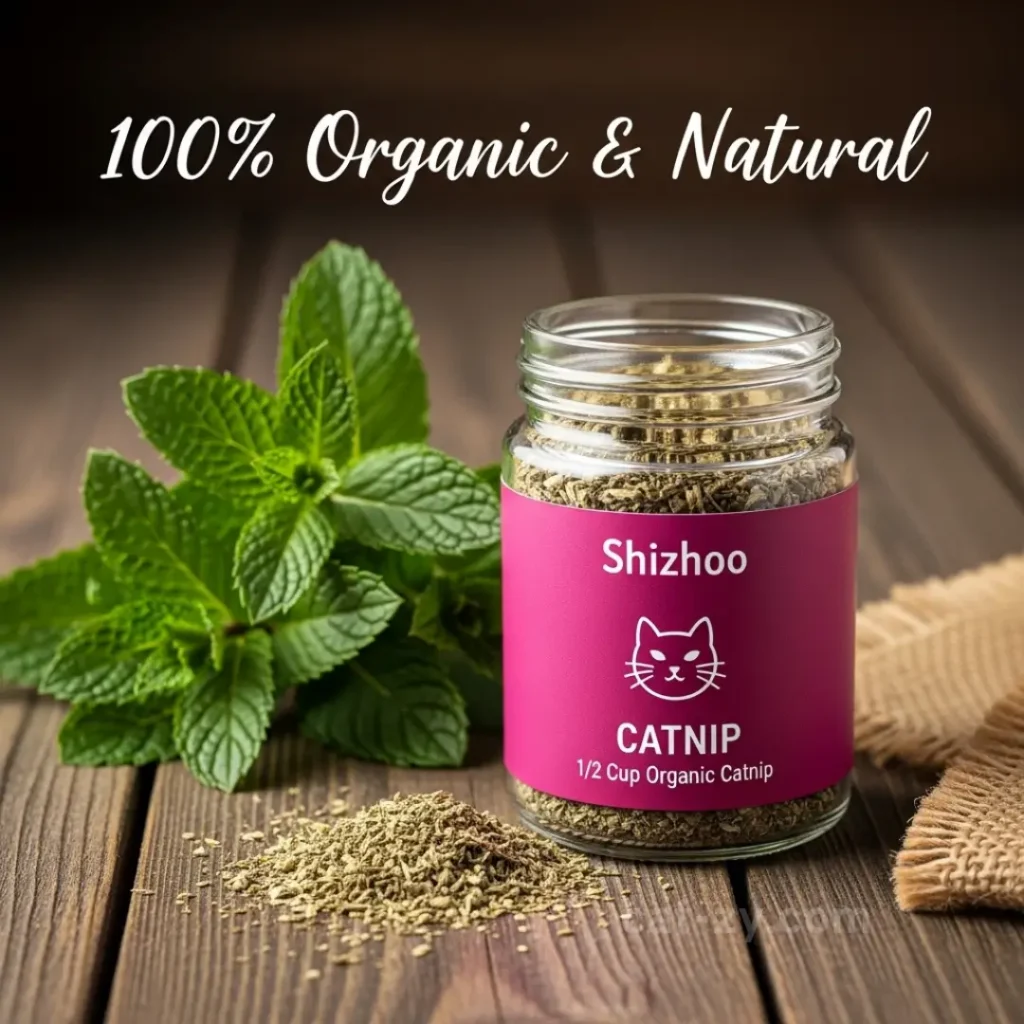
By following these tips, you can make a safe and beautiful space for your cat and plants. This way, everyone in your home can be happy.
Conclusion: Enjoying Roses While Keeping Your Cat Safe
While the answer to ‘Are roses toxic to cats’ is that roses aren’t usually toxic to cats, there are other dangers. The thorns can hurt your cat, and some rose products are harmful.
To keep your cat safe, know the risks. Check the type of rose and any treatments it had. Place roses where your cat can’t reach them and watch how they act around the flowers.
If you worry about your cat and roses, talk to your vet. They can tell you about dangers and help make your home safe for your cat.
Knowing and taking care can let you enjoy roses and flowers safely with your cat. While roses aren’t toxic, it’s best not to let your cat eat them. Focus on making a safe and fun space for both you and your cat to enjoy roses.
FAQ
Are roses toxic to cats?
Roses themselves are not usually harmful to cats. But the thorns can hurt them. Also, rose essential oils can be dangerous.
What parts of the rose plant are safe or toxic for cats?
Rose petals are usually safe for cats. But the thorns can hurt them. The seeds or leaves might upset their stomach if eaten.
Are carnations toxic to cats?
Carnations can mildly upset a cat’s stomach. They have compounds that irritate. But they are not usually dangerous.
What flowers are safe for cats?
Safe flowers for cats include orchids, sunflowers, and zinnias. Always check with a vet or a plant toxicity guide before adding new flowers.
Can cats eat roses?
Cats can’t eat roses safely. The thorns can hurt them. Eating plant parts can also upset their stomach.
What steps should I take to protect my cat when roses are present?
Keep your cat safe by placing roses out of reach. You can also use a non-toxic spray to deter them.
What are some cat-friendly alternatives to roses for special occasions?
For special times, use cat-safe flowers like orchids or sunflowers. This way, your cat can enjoy the celebration safely.
What flowers are poisonous to cats?
Lilies pose severe toxicity risks to felines and may result in complete kidney failure. Tulips, sago palms, daffodils, and azaleas are also dangerous. Desert Rose, Christmas Rose, and Lenten Rose contain harmful toxins. Always verify flower safety before bringing them home.
Are roses safe for cats?
True roses are generally safe for cats, though thorns can cause physical injuries. However, commercial roses may contain harmful pesticides if ingested. Rose essential oils and concentrated products are toxic to cats and should be avoided completely.

